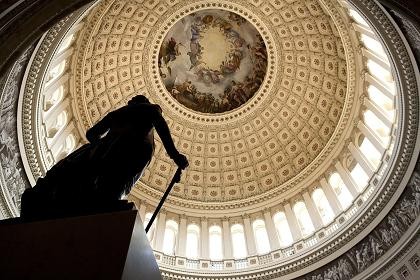It’s conventional wisdom that this year’s presidential campaign is one of the most policy-free of all time. The reason is obvious: Donald Trump is a policy void. He knows nothing, doesn’t want to know anything, and brags frequently about how everything you need to know to be president can be learned in an hour or two. His milieu is entertainment and insults, not policy wonkery.
I think this view is wrong, and I’d like to present a thoughtful, nuanced argument against it. Unfortunately, I don’t have that in me at the moment. Instead, here’s a quickie blog-length micro-essay making my case.
Among political junkies, “policy” means white papers. It means understanding the details of how government programs work. It means charts and tables. It means historical context. It means stuff generally written  by folks with PhDs who have deep subject matter expertise.
by folks with PhDs who have deep subject matter expertise.
This is my meat and drink. If this blog had a mission statement, it would be something like this: Bringing policy lite to the masses. I like reading academic papers and trying to explain them in plain English that any ordinary educated person can understand. I like historical context. I respect folks with deep subject matter expertise. I adore charts and tables. And I want to spread all this stuff to more people.
But we live in a country where a third of the population can’t name the three branches of government and something like 95 percent probably have no idea how Social Security works. Feel free to sneer if you must, but most people just aren’t interested in policy deep dives. And why should they be? Being a political junkie is basically a hobby, like collecting stamps or writing bad poetry. You probably aren’t interested in that stuff, and there’s no reason lots of people should be interested in your hobby.
But that doesn’t mean they don’t care about political issues. Many of them care more than you do. They just don’t have much of a jones for white papers. Nonetheless, all of these things are policy:
- Building a wall to reduce illegal immigration from Mexico.
- Keeping troops in Afghanistan.
- Changing our strategy for destroying ISIS.
- Improving relations with Russia.
- Toughening visa requirements to keep potential terrorists out of the country.
- Expanding or repealing Obamacare.
- Signing an agreement with Iran to halt their nuclear program.
- Making college free.
- Halting new trade agreements until they’re made better for American workers.
- Spending more on the military.
- Insisting that treaty allies pay a higher share of defense costs.
- Creating a federal maternity leave and child care program.
- Tackling climate change.
- Whether we should make America more energy independent via more clean power or more extraction of fossil fuels.
- Profiling Muslims and surveilling mosques to stay ahead of Islamic terrorism.
- Appointing liberal vs. conservative Supreme Court justices.
- Routine stop-and-frisk as a way of combating crime.
- Raising the minimum wage.
- Rebuilding infrastructure.
This is a long list, and it doesn’t even include the usual evergreens (abortion, guns, tax cuts) or stuff that hasn’t broken through enough to really affect things (vets, charter schools, NSA spying). In a nutshell, then, I’d argue not only that 2016 is a policy-heavy year, but that thanks to Donald Trump’s, um, earthy approach to things, the differences in policy between the two candidates are sharper than in nearly any election during my adult life. Lack of detail is irrelevant. Nor does it matter if you don’t like Trump’s earthiness. For the average Joe and Jane, Trump’s coarse approach makes his positions more policy-centric than arguments over whether we should use chained CPI for Social Security COLAs or support a public option for Obamacare.
There is, obviously, a vast rhetorical gap between Donald Trump and Hillary Clinton, but their policy gap is equally far-reaching. And my guess is that more people know about their policy differences than in any year in recent memory. If anything, 2016 has featured more policy topics making it into the spotlight than usual. It’s the year that policy truly took over an American presidential election.















